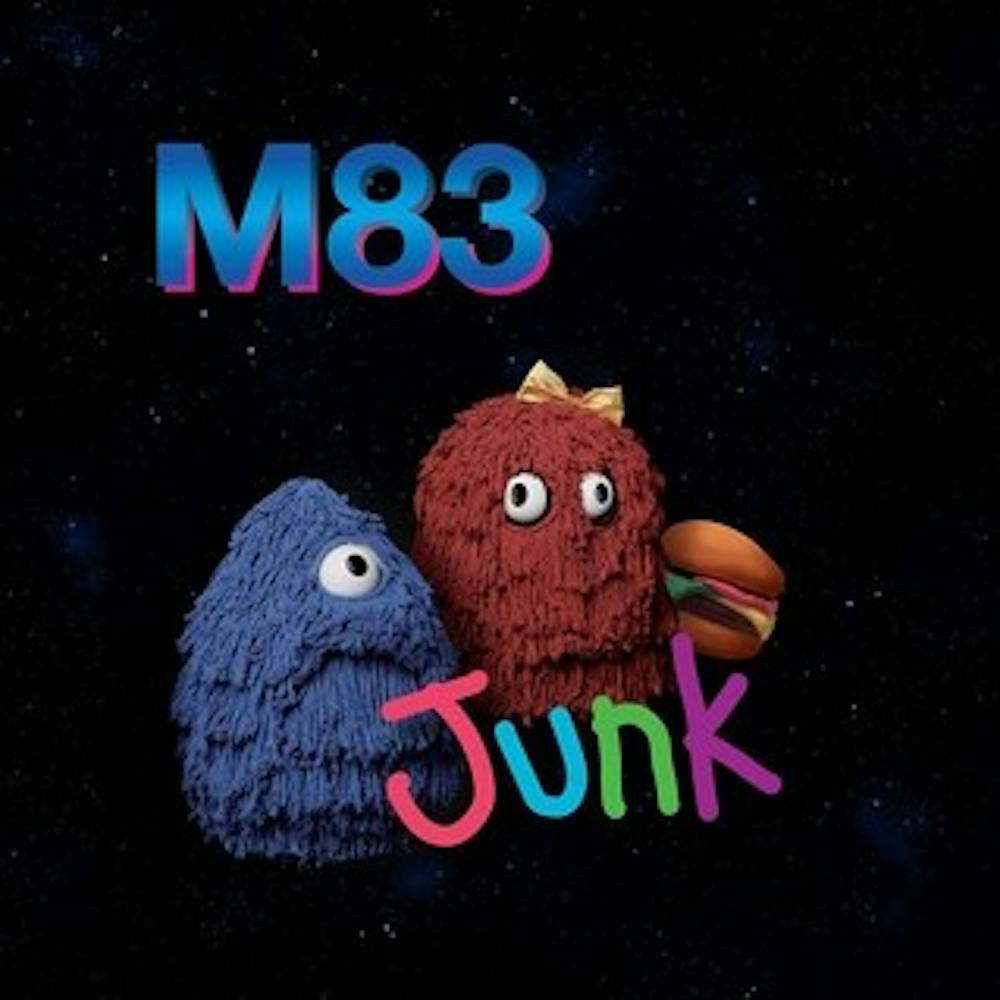“Junk” was a risky move in its conception. Anthony Gonzalez’s narrative was inspired by 1970s and 1980s television, specifically “Punky Brewster” and “Who’s the Boss.” The goal was to explore nostalgic fantasies through these roots, but those roots don’t belong to the generation of M83 listeners. Thus, for the majority of fans, “Junk” only fulfilled Gonzalez’s desire to show a different side of him yet again.
This side offers an incredibly distinctive sound from albums past but is still based on his own fascination with the past, specifically his childhood. Most tracks on “Junk” sound almost ironically outlandish, stemming from what Gonzalez claims is from a period of disillusionment with Los Angeles life and the band’s tendency toward grandiose concept albums. This is no exception, but unfortunately this is a concept with which few young listeners can relate.
Interestingly enough, Gonzalez himself anticipated his album to contain only one or two “popular” songs and the rest to end up as “junk,” as was the case with “Hurry Up, We’re Dreaming” in 2011. The major difference here, however, is that this latest LP used lyrics of childhood nostalgia to trigger questions and emotions from the listener's own life. “Hurry Up” seemed to present the paradox of whether it was truly possible to capture your own past, and if anything, the follow-up with “Junk” provides a resounding “no.” We can look back to the past, revisit it and feel the same regret or joy as once before, but unless we have something nuanced to contribute to it, it is enjoyable at best and frivolous at the worst.
Such is the case with the majority of tracks on “Junk.” The whole album is silly, upbeat and aesthetically driven but only seems to emulate rather than innovate from its 80s inspiration. The positive, feel-good lyrics are incredibly reminiscent of any Jesse Frederick theme song but don’t evoke any new feelings. The cheeky, cheesy, chortled character of “Junk” still has the general refined quality that M83 embodies, but Gonzalez has lost his sincerity.
“Do It, Try It” is, however, musically-speaking a notable track. Although it tritely discusses the pleasure of defying expectations — a very juvenile and overdone theme — the misalignment of the piano and rhythm of the singing is irresistibly quirky and fun.
“Go!” has a synth-heavy and airy beginning, but a countdown suddenly submerges you in melody and rhythm. Overall, it’s another fun song with a highly anticipated guitar solo from Steve Vai.
Yet tracks such as “Solitude” follow these two and leave you feeling incredibly unresolved. “Moon Crystal”, for example, really does remind you of those TV shows Gonzalez was hoping to emulate, but only due to the fact that they are nearly carbon copies of the theme songs of such 80s shows — in this case, “Who’s the Boss.” Innovation is key in any concept album.
“Junk” is full of lively tracks that will temporarily satiate your hunger, but at the end of the day it leaves you wanting more. After all, who can only eat two Oreos?







